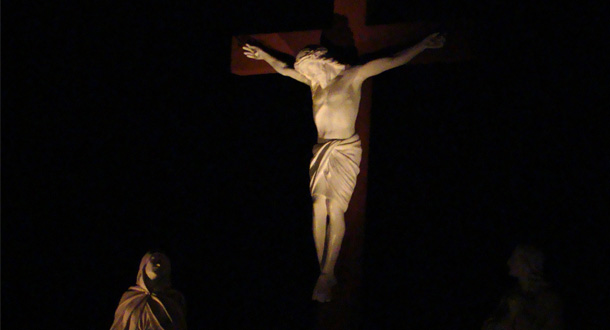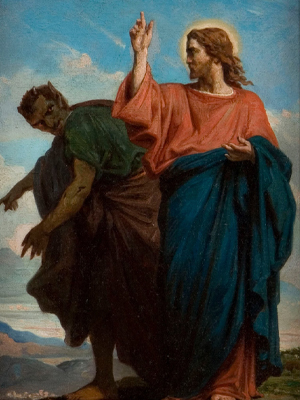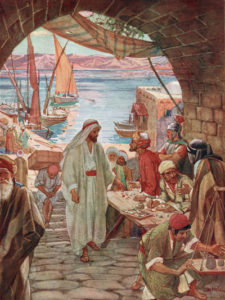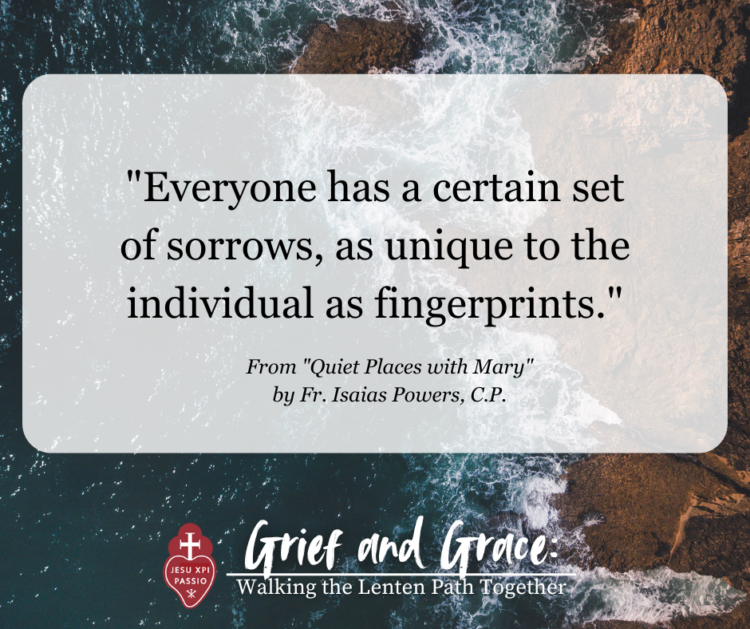
Scripture:
Reflection:
Hidden in Plain Sight
The Lord’s Prayer, as we know, contains seven petitions:
Our father, who art in heaven, hallowed be thy name.
Thy kingdom come
Thy will be done on earth, as it is in heaven.
Give us this day our daily bread
Forgive us our trespasses as we forgive those who trespass against us
Lead us not into temptation
But deliver us from evil.
But, the Lord’s Prayer has a word hidden in plain sight, or word with a concealed meaning. This word appears only twice in the entire bible, in Matthew’s prayer here, and in Luke’s version of the Our Father, Lk 11:3.
That strange word is a Greek word, epiousion, and unfortunately it is mistranslated as “bread” — give us this day our “daily bread.”
If this word is strange and curious, it is because the gospel writers needed to create a new word to describe something new — the communion bread of the Last Supper, the Eucharist.
Epi, means over, above. And ousios, means essential or substantial. Thus, a more accurate translation and meaning would be “super substantial bread.” In his Vulgate (Latin) translation of the Bible, St. Jerome translates epiousion as panem supersubstantianem.
This is no ordinary bread to which the Our Father refers. No.
Give us today our super substantial bread clearly echoes the Eucharist. In the Eucharist, the confected bread looks like ordinary “daily bread.” But as we Catholics know — with the certainty of faith — that underlying the substance has been changed. And the reality hidden in plain sight by the accidental veil of plain bread is the real presence, body, blood, soul, and divinity of Jesus Christ.
This mysterious coined word, sits right in the middle of the seven petitions. The first three petitions are heavenly, transcendent petitions. The last three petitions are earthbound. And the word, epiousion binds the heavenly and the earthly, just as the Eucharist is the super substantial
bread of the Messianic banquet, which we celebrate, that unites us, the mystical body of Christ, with God, the angels and saints.
Whether we call it a word hidden in plain sight, or a word with a concealed meaning is of little matter. The epiousion, the Eucharist remains for us our super substantial bread that nourishes us daily.
Deacon Manuel Valencia is on the staff at Mater Dolorosa Passionist Retreat Center, Sierra Madre, California.





